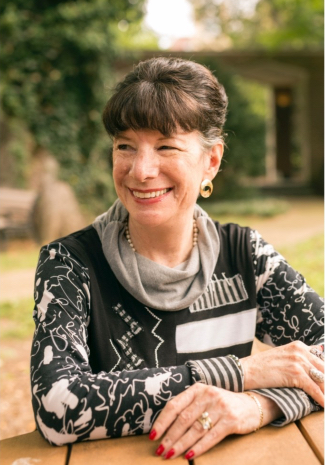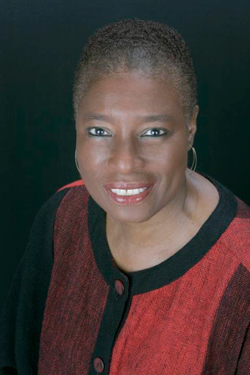The American Academy of Arts and Sciences announced today the election of two esteemed members of Vanderbilt’s faculty, Amy-Jill Levine, University Professor of New Testament and Jewish Studies and Mary Jane Werthan Professor of Jewish Studies, and Hortense Spillers, Gertrude Conaway Vanderbilt Professor of English. They are among 252 new members selected for the academy in 2021.
“Vanderbilt is honored that the American Academy of Arts and Sciences has elected two extraordinary members of our preeminent faculty,” Chancellor Daniel Diermeier said. “Amy-Jill Levine and Hortense Spillers represent the best of academia. They have both made a profound impact in their respective fields and, as a result, broadened humanity’s understanding of our shared experience.”
The American Academy of Arts and Sciences was founded in 1780 by John Adams, John Hancock and others who believed the new republic should honor exceptionally accomplished individuals and engage them in advancing the public good. It is one of the country’s oldest and most distinguished scholarly societies.
“The election of professors Levine and Spillers to the American Academy of Arts and Sciences offers well-deserved recognition of their enduring scholarship,” said Susan R. Wente, provost and vice chancellor of academic affairs. “I join their faculty colleagues in congratulating both on this remarkable achievement.”

Levine is one of the foremost authorities on New Testament studies and the historical context of Jesus and Christianity. She is an affiliated professor at the Woolf Institute’s Center for the Study of Jewish-Christian Relations in Cambridge, United Kingdom.
Her books include The Misunderstood Jew: The Church and the Scandal of the Jewish Jesus (a Publisher’s Weekly Best Book of 2007); Short Stories by Jesus: The Enigmatic Parables of a Controversial Rabbi; The Meaning of the Bible: What the Jewish Scriptures and the Christian Old Testament Can Teach Us (with Douglas Knight); The New Testament, Methods and Meanings (with Warren Carter); and The Gospel of Luke (with Ben Witherington III). Her most recent book is The Bible With and Without Jesus, co-authored with Marc Z. Brettler. With Brettler, she co-edited The Jewish Annotated New Testament.
Her children’s books (with Sandy Sasso) include Who Counts? 100 Sheep, 10 Coins and 2 Sons; The Marvelous Mustard Seed; Who Is My Neighbor?; A Very Big Problem; and the forthcoming boardbook, 100 Sheep: A Counting Parable.
Levine has been awarded grants from the Mellon Foundation, the National Endowment for the Humanities, and the American Council of Learned Societies. She has held office in the Society of Biblical Literature, the Catholic Biblical Association, and the Association for Jewish Studies.

Spillers is a renowned scholar and critic who has written extensively on Black feminism and African American literature.
Her collection of essays, Black, White, and In Color: Essays on American Literature and Culture (University of Chicago Press, 2003), includes reflections on authors such as Ralph Ellison, Gwendolyn Brooks and William Faulkner. She co-edited (with Marjorie Pryse) Conjuring: Black Women, Fiction, and Literary Tradition (Indiana University Press, 1985).
Spillers serves on a number of editorial boards, among them the editorial collective of boundary 2, and is a former member of the executive council of the Modern Language Association. Some of her more recent essays have appeared in The New Centennial Review, das argument, and boundary 2. With Tamura Lomax, she co-founded The Feminist Wire, an online magazine dedicated to feminist issues and critique.
Among her numerous honors and awards are grants from the Rockefeller Foundation and the Ford Foundation. Spillers also has served as a fellow at both the National Humanities Center in Research Triangle Park, North Carolina, and the Center for the Study of the Behavioral Sciences in Palo Alto, California.
She was interviewed for the 2014 documentary Dreams Are Colder than Death, which was screened on campus during “The African Diaspora in the World” symposium. In 2017, she was honored by the Caribbean Philosophical Association with the Nicolás Guillén Lifetime Achievement Award for her groundbreaking work in philosophical literary theory, which spans the course of disciplines across the humanities and social sciences.